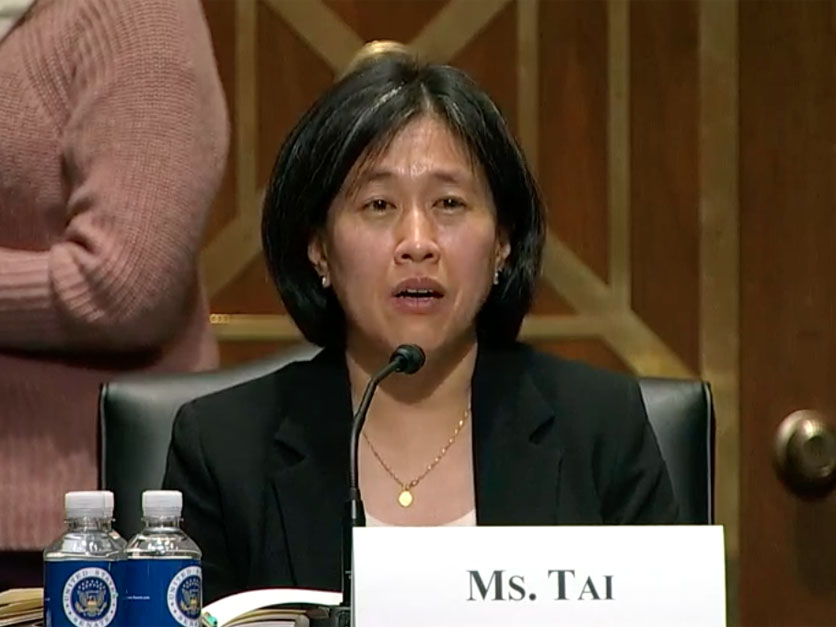The Senate unanimously confirmed Katherine Tai to be President Joe Biden’s U.S. Trade Representative with a bipartisan 98-0 vote Wednesday.
Tai, formerly the top trade lawyer for the House Ways and Means Committee and chief counsel on China trade enforcement at the Office of USTR during the Obama administration, also has strong support from U.S. farm groups with a long list of trade priorities.
“We have a great opportunity to build on existing agreements with China and our North American neighbors, as well as create new opportunities with the European Union and the United Kingdom,” American Farm Bureau Federation President Zippy Duvall said Wednesday. “Ms. Tai’s ability to build bipartisan support for policies and her experience with enforcing fair-trade rules will help America’s farmers and ranchers compete internationally and continue putting food on tables around the world.”
One of Tai’s biggest challenges will be China. The country continues to buy massive amounts of U.S. corn, soybeans and pork, and its imports of U.S. beef are rising quickly, but the two countries are technically still in a trade war with tariffs and retaliatory tariffs in place.
The USDA just announced Wednesday another large export sale of 1.224 million metric tons of U.S. corn to Chinese buyers. That followed closely behind a Tuesday sale of 1.156 million tons of corn to China.
While the two big sales this week are very good news, Lesly McNitt, director of public policy and trade for the National Corn Growers Association, says the group is also focused long-term on a stable, open and transparent relationship with China.
“We’re looking forward to remaining a reliable grain supplier to China,” she said.
U.S. rice farmers are hoping that China will finally follow through on a promise made in the “phase one” trade pact and begin buying substantial amounts of U.S. rice. The Archer Daniels Midland Company delivered the first-ever shipment of U.S. rice to China in October, but it was a relatively small amount of 20 metric tons.
“We look forward to working with her as she takes on her new role at USTR, and we are hopeful that Tai’s demonstrated knowledge of the rice sector and her work on the USTR China cases at their inception will serve our industry and all of agriculture well in this new administration,” USA Rice Federation President Betsy Ward said in a statement Wednesday.
Interested in more news on farm programs, trade and rural issues? Sign up for a four-week free trial to Agri-Pulse. You’ll receive our content - absolutely free - during the trial period.
But Tai will be expected to reach beyond China and pave the way for increased trade in Asia and elsewhere around the globe.
Jim Mulhern, president and CEO of the National Milk Producers Federation, said Wednesday, “With over 15% of U.S. milk production being exported each year, enforcement of current trade agreements and opening new market opportunities overseas will help provide a profitable rural economy.”
While U.S. pork producers are hopeful that the Biden administration will eventually move to rejoin the Trans-Pacific Partnership, their immediate priority on the international stage is better access to lucrative markets in the Philippines and Vietnam.
Free trade agreements with the two Asian countries would be great, but a lot can be achieved with the two countries in the short term, says Nick Giordano, NPPC’s chief lobbyist.
“The fastest growing economic region in the world is the Asia-Pacific,” says Giordano, who stressed that both the Philippines and Vietnam have seen domestic pork production suffer from outbreaks of African swine fever and turn to imports to feed their people.
Demand surges in the Philippines and Vietnam helped expand U.S. pork exports to Southeast Asia in 2020 by 32%, according to the U.S. Meat Export Federation.
For more news, go to www.Agri-Pulse.com


